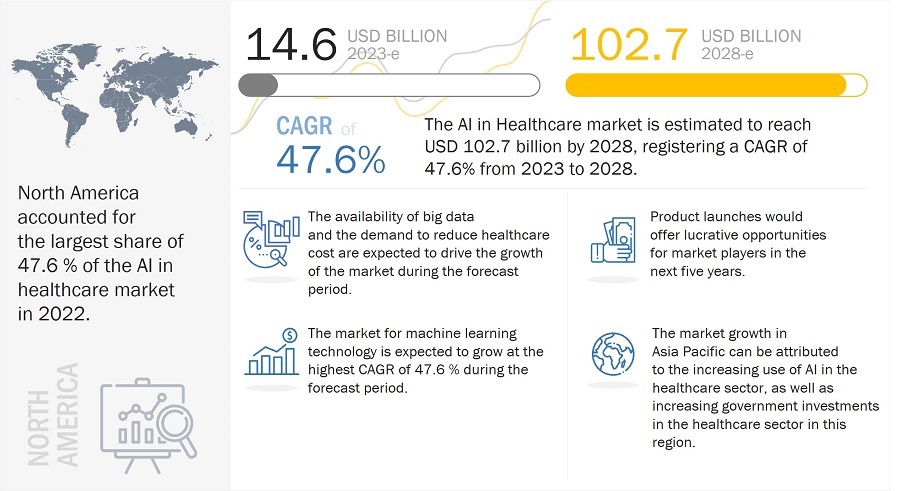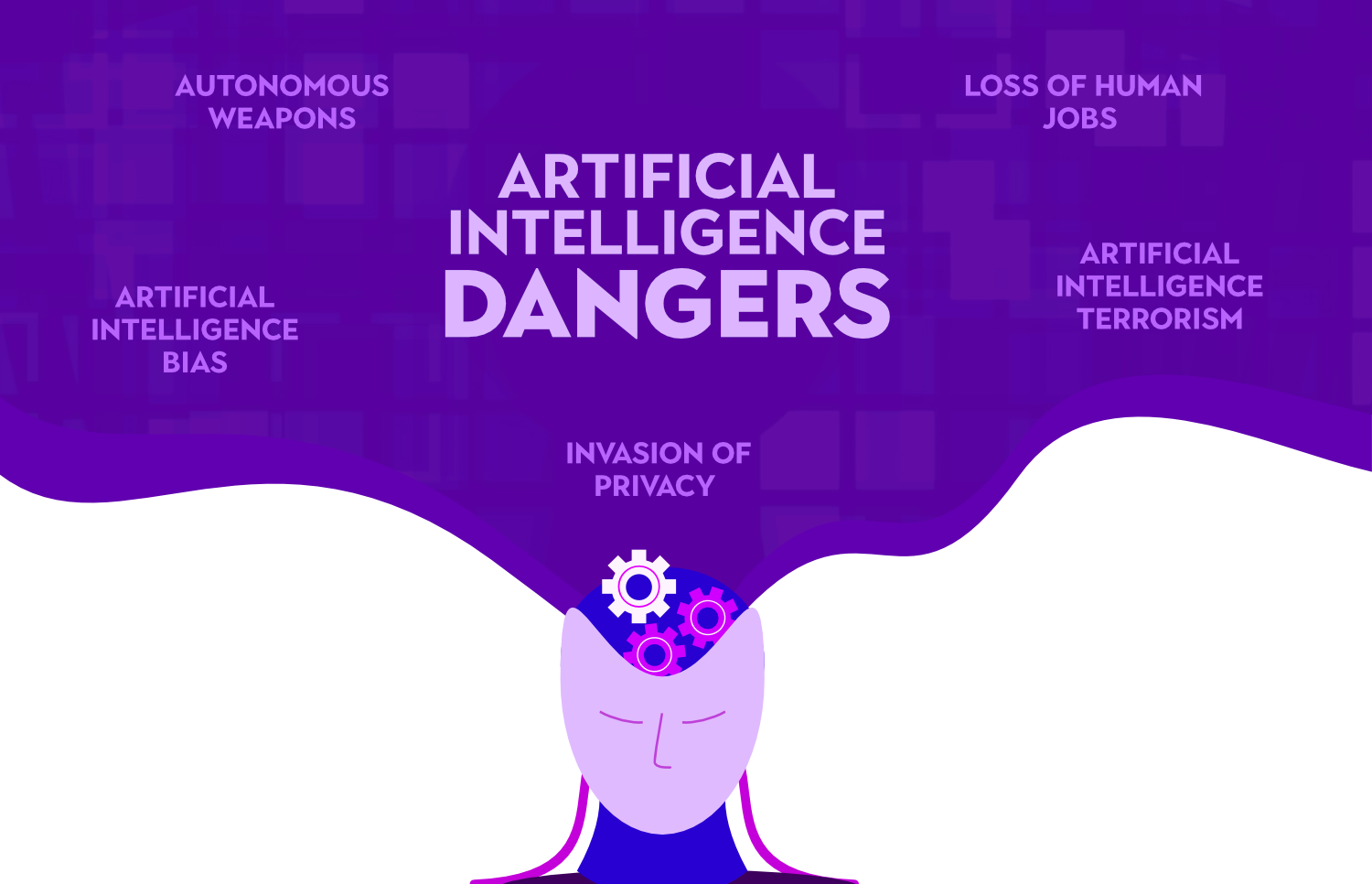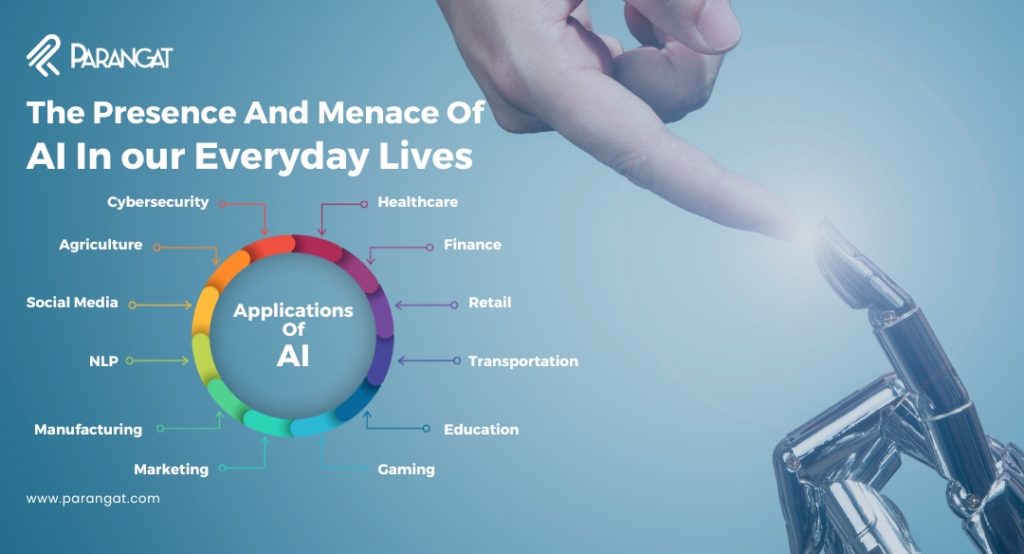Artificial Intelligence is a remarkable creation of mankind. It started as a visionary idea in 1940 and has grown massively today. In 2022, the global AI market was worth a mind-boggling $454.12 billion, and experts predict it will reach $2,575.16 billion by 2032. Today, it silently works in numerous industries, making our lives easier. But along with its benefits, AI poses serious challenges. Therefore, this article will explore the many sides of AI. It will delve into how it impacts your work life and the issues that come along with it. But let’s first start by understanding what artificial intelligence is.
What Is Artificial Intelligence?
Artificial Intelligence (AI) is a technology that enables machines to perform tasks requiring human intelligence. It allows them to do problem-solving and learning. AI works by using algorithms and data to make decisions and solve problems. It can analyze vast amounts of information quickly and accurately.
Some of the characteristics of AI are:
1. Learning Ability: Artificial intelligence can learn from data and improve over time. It can identify patterns in information and adjust its behavior based on new inputs.
2. Problem Solving: AI can analyze complex problems and find solutions by considering various factors and options. It can simulate different scenarios to determine the best course of action.
3. Adaptability: AI can adapt to different situations and tasks. It can switch between tasks or adjust its approach when faced with changes. This further makes it versatile in handling diverse challenges.
4. Processing Speed: AI processes information and performs tasks much faster than humans. It can quickly analyze large amounts of data and provide insights or complete actions in a fraction of the time it would take a person. Today, AI is all around us. It is powering voice assistants, social media algorithms, and driving cars. Thus, it is also raising concerns about privacy and ethics. It’s essential to use AI responsibly and ensure it benefits humanity positively.
Must Read: Exploring AI Trends And Coding Tutorials
Top 12 Applications Of Artificial Intelligence
In 2022, around 35% of businesses worldwide started using AI. Artificial intelligence is revolutionizing numerous industries today. Some of the top applications of AI are:
1. AI In Healthcare
The global healthcare AI market is speculated to be $102.7 billion by 2028, growing at a CAGR of 47.6%. The healthcare industry uses artificial intelligence to analyze medical data and enhance patient care. This is also why. It can assist healthcare professionals in numerous ways:

- Medical Imaging Analysis: AI algorithms can detect abnormalities by analyzing X-rays, MRIs, and CT scans. Thus, they assist radiologists in diagnosing diseases more effectively.
- Personalized Treatment Plans: AI uses patient data and medical history to recommend tailored treatment options. This further optimizes outcomes and minimizes side effects.
- Predictive Analytics: AI can predict patient risks and deterioration, helping healthcare providers intervene proactively.
2. AI In Finance
AI in finance refers to the application of artificial intelligence technology to enhance decision-making and mitigate risks in the financial industry. AI-powered algorithms analyze vast amounts of data, identify patterns, and make predictions to improve financial services and operations. It facilitates the finance industry in the following ways:
- Fraud Detection: AI algorithms monitor transaction data in real-time to detect and prevent fraudulent activities, safeguarding customers and institutions.
- Robo-Advisors: AI-driven robo-advisors offer investment advice based on an individual’s financial goals and risk tolerance.
- Credit Risk Assessment: AI analyzes credit histories, income, and other data to assess loan applicants’ creditworthiness. This enables better lending decisions.
3. AI In Retail
AI in retail refers to the utilization of artificial intelligence technology to enhance the retail industry’s efficiency, personalization, and customer experience. AI algorithms transform how retailers operate and interact with customers. It is currently being used in the retail industry in the following ways:
- Recommendation Systems: AI-powered recommendation engines suggest products based on customers’ browsing and purchase history. This boosts sales and customer satisfaction.
- Inventory Management: AI optimizes inventory levels by predicting demand patterns and reducing stockouts.
- Chatbots: AI-driven chatbots provide instant customer support. It answers queries, processing orders, and further improves overall customer service.
4. AI In Transportation
The global market of AI in transportation was estimated at USD 2.3 billion in 2021 and will reach $14.79 billion by 2030. AI tools in transportation are used to optimize traffic flow, enabling autonomous vehicles and enhancing predictive maintenance. This leads to safer and more efficient transportation systems. It aids the transportation industry in the following ways:
- Autonomous Vehicles: AI enables self-driving cars and trucks, reducing accidents and enhancing transportation accessibility.
- Traffic Management: AI optimizes traffic signals and flows based on real-time data. This further reduces congestion and travel time.
- Predictive Maintenance: AI monitors vehicle health, which allows it to predict maintenance needs. This further prevents breakdowns and ensures smoother operations.
5. AI In Education
AI in education refers to integrating artificial intelligence technology to enhance the learning experience and streamline administrative tasks. AI-powered systems analyze student data, adapt curriculum, and automate administrative processes. This transforms how education is delivered and accessed. Today AI is majorly replacing teachers in countries like Singapore and South Korea. These countries are using AI to teach their youth. It caters to them in the following ways:
- Personalized Learning: AI tailors learning materials based on students’ strengths and weaknesses. This promotes individualized learning paths.
- Intelligent Tutoring: AI-driven tutoring systems provide real-time feedback and assistance to students, further supporting their academic progress.
- Automated Grading: AI automates the grading process. This saves the teacher’s time and provides prompt feedback to students for continuous improvement.
6. AI In Gaming
AI in Gaming involves integrating artificial intelligence technology to enhance the gaming experience, making virtual characters more realistic and responsive. AI-powered algorithms dynamically generate game content and adapt difficulty levels based on players’ performance, creating immersive and engaging gameplay. It is being used in this industry in the following ways:
- Non-Player Characters (NPCs): AI-driven NPCs exhibit human-like behaviors, responding to players’ actions and making the game more interactive.
- Procedural Content Generation: AI generates game environments and quests dynamically. This provides players with unique and endless gameplay possibilities.
- Adaptive Difficulty: AI adjusts the game difficulty based on players’ skills and progress, offering a challenging experience tailored to individual abilities.
7. AI In Marketing
AI in marketing uses artificial intelligence technology to optimize marketing strategies and enhance customer engagement. It predicts customer behavior and automates marketing campaigns.
This further enables businesses to deliver personalized content, improve targeting, and achieve better ROI. Currently, AI is facilitating marketing processes in the following ways:
- Customer Segmentation: AI analyzes customer data to segment audiences based on preferences and behaviors. This enables targeted marketing campaigns.
- Sentiment Analysis: AI interprets emotions from customer feedback and social media posts. This helps businesses calculate customer satisfaction and sentiment toward their brand.
- Content Optimization: AI tools analyze data to identify the most effective content types and distribution channels, maximizing the impact of marketing efforts.
8. AI In Manufacturing
AI in manufacturing refers to implementing artificial intelligence technology to optimize manufacturing processes and improve product quality. In this industry, AI-powered systems analyze data from sensors and machines. This enables them to automate tasks, increasing efficiency and cost savings. AI is aiding the manufacturing industry in the following ways:
- Predictive Maintenance: AI monitors equipment health and performance, which allows it to predict its maintenance needs. This further prevents costly breakdowns and minimizes downtime.
- Production Optimization: AI analyzes data to optimize production schedules, resource allocation, and workflow. This helps in improving the overall manufacturing efficiency.
- Quality Control: AI-powered vision systems inspect products in real-time. This allows it to identify defects and ensure consistent product quality.
9. AI In NLP
AI in NLP (Natural Language Processing) involves understanding, interpreting, and generating human language. NLP enables machines to comprehend text and speech, making it possible for machines to communicate with humans more effectively. It is serving this domain in the following ways:
- Language Translation: AI-powered NLP systems can accurately translate text and speech between different languages.
- Sentiment Analysis: NLP algorithms analyze text to determine the emotional tone and sentiment. This allows them to understand customer feedback and opinions on products or services.
- Voice Assistants: Such NLPs enable virtual assistants like Siri and Alexa to respond to natural language commands and queries.
10. AI In Social Media
AI in Social Media analyzes user data and behavior, helping them recommend personalized content and optimize ad targeting. This makes social media platforms more engaging and efficient. AI aiding this industry in the following ways:
- Content Curation: AI algorithms personalize users’ social media feeds, displaying relevant content based on their interests and preferences.
- Fake News Detection: AI analyzes content to identify misinformation and fake news. This maintains accurate and trustworthy information.
- Social Listening: AI monitors and analyzes social media conversations, providing valuable insights into brand sentiment and customer feedback.
11. AI In Agriculture
AI in Agriculture refers to applying artificial intelligence technology to enhance agricultural practices and optimize farming operations. AI-powered systems analyze data from sensors, satellites, and drones. This enables the following:
- Precision Farming: AI analyzes data on soil quality, weather, and crop health. It allows it to optimize irrigation and fertilization, improving crop yields.
- Crop Monitoring: AI-powered drones and satellites monitor crop growth. This enables it to detect early signs of pests, or nutrient deficiencies, enabling timely interventions.
- Automated Machinery: AI-driven autonomous vehicles and robots can perform tasks like planting, harvesting, and weeding. This reduces the need for manual labor and increases efficiency.
12. AI In Cybersecurity
AI in Cybersecurity involves using it to detect and defend against cyber threats. AI-powered systems analyze data and identify patterns of malicious activities. This enables quicker threat detection and improved overall security. AI is facilitating this field in the following areas:
- Threat Detection: AI algorithms monitor network traffic, user behavior, and system logs to identify unusual activities and potential cyber threats.
- Anomaly Detection: AI identifies deviations from standard patterns, helping to detect new and previously unseen cyber threats.
- Automated Response: AI-driven security systems can autonomously respond to specific cyber incidents, blocking malicious traffic or quarantining infected devices.
Explore How Artificial Intelligence Works With Big Data?
Possible Threats Of Artificial Intelligence
Artificial Intelligence (AI) offers tremendous benefits, but it also comes with potential threats, including:
1. Job Displacement
AI’s ability to automate tasks previously performed by humans can lead to job displacement in various industries. While AI enhances productivity and efficiency, it may also result in job losses for certain roles. Thus, there is a need for upskilling and retraining programs to equip the workforce with skills that complement AI.

2. Bias and Discrimination
AI algorithms learn from historical data, which can contain societal biases. If left unchecked, these biases can perpetuate discrimination in areas like hiring and lending. Thus, ensuring that AI models are developed with diverse datasets and undergo regular audits to mitigate potential biases is crucial.
3. Lack of Human Oversight
Over-reliance on AI without human supervision can lead to errors and unintended consequences. Thus, humans must maintain control and exercise judgment over AI systems, especially in critical domains like healthcare and transportation.
4. Security Risks
As AI technology evolves, so do the capabilities of malicious actors. AI-powered cyberattacks can be more sophisticated, posing significant threats to individuals and organizations. Thus, constant monitoring and proactive defenses are essential to mitigate such risks.
5. Privacy Concerns
AI’s capacity to analyze vast amounts of data can raise concerns about personal privacy and data protection. Companies and developers must prioritize data privacy by implementing strong encryption, anonymization, and explicit user consent mechanisms.
6. Autonomy and Decision-Making
Granting AI systems too much autonomy without human oversight can lead to decisions with potentially harmful consequences. Thus, responsible AI design includes setting clear boundaries and ensuring that AI systems always involve human intervention for critical decisions.
7. AI in Weapon Systems
Deploying autonomous weapons using AI raises ethical dilemmas and international security risks. The lack of human control over lethal AI could lead to unforeseen escalation and unintended casualties. This makes it necessary for international agreements and regulations to address the use of AI in weapon systems.
8. Singularity
The idea of AI reaching superintelligence is known as singularity. It raises concerns about its impact on society. Speculation about AI surpassing human intelligence raises questions about control, ethics, and the implications of such a scenario. Therefore, it requires ongoing research and robust governance to ensure responsible AI development.
Conclusion
Artificial Intelligence has undoubtedly brought transformative advancements, making everyone’s lives more convenient and efficient. However, it also presents challenges and risks that demand careful consideration. As we embrace AI, it is essential to strike a balance between embracing its potential and addressing its potential dangers.
However, by promoting responsible AI development, you can pave the way for a future where AI serves humanity positively and enhances your everyday lives. Parangat Technologies is an active and effective developer of this domain. We are home to skilled software engineers and developers with decades of experience who specialize in creating efficient and secure AI systems per your requirements. Apart from this, we also deals in a comprehensive range of services. It includes mobile app development, blockchain development, and UI/UX design. So, contact Paranghat today and strengthen yourself with reliable AI solutions.

With roll up sleeves, dive in and get the job done approach, it was in the year 2010 when Sahil started Parangat Technologies. Emphasizing a healthy work culture and technology-driven company, he has successfully created a workplace where people love to work and live. He is a software engineer and a passionate blockchain enthusiast.


 +44-7511-112566
+44-7511-112566 +353-1-8079571
+353-1-8079571 +1-415-799-9792
+1-415-799-9792

